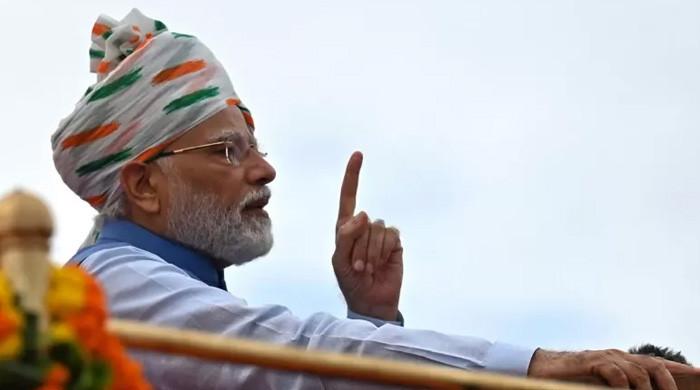The insistence of the Indian Prime Minister Narendra Modi in the national adoption of Hindi, the main language of northern India, has caused the anger of some states, which saw it as a movement that would eliminate its cultural heritage.
In linguistically diverse India, the imposition of Hindi has always caused tensions between the states and the central government.
The high profile fights have recently exploded for the impulse of Modi for the national adoption of Hindi, the language of its power of power in northern India and a symbol of their campaign to unify the country around the ideology of Hindu nationalism, the New York Times reported on Sunday.
In Maharashtra, a state in Western India governed by Modi’s party, the Bharatiya Janata (BJP) party, was forced to retract a policy that required the Hindi to be taught in the primary schools last month.
Opposition politicians, residents and others had called politics an affront to Marathi, the native language of the region, according to the report.
In another state, the main minister of Tamil Nadu has been unleashed for months against an educational policy promoted by the Modi government for the adoption of Hindi, claiming that he is trying to force students to learn the language.
This state of southern India has a history of disturbances about efforts to make Hindi mandatory.
Tamil Nadu sued the central government in May after he said he would retain educational funds until the State implemented politics.
“It is common sense that pushing any language will damage national integration and the unity of a linguistically diverse nation such as India,” said Niranjanadhya vice president, an activist who studies how education affects child development.
“It is due to this imposition that people are so much resistance.”
Central government officials have been careful to publicly emphasize that the force of India lies in its linguistic diversity. When any of India’s languages attack, its objective is English, which calls it a legacy of colonialism that must be dismissed to build a new India.
Hindi and English are the two official languages of India, and the Hindi is the mother tongue of the largest group in Indians.
The ruling leaders of the BJP have caused Hindi to spread a cornerstone of their general objective of remakeing India to a Hindu nation and Modi government officials refer more and more to the country as Bharat, a name derived from the Sanskrit.
The Modi government has constantly promoted Hindi throughout the country by appointing new public programs, such as education, agriculture or development, in the language.
Tamil Nadu has refused to comply with that policy, which the state government affirms is a way to force Hindi’s teaching.
Its main leader, MK Stalin, has said that his condition does not need Hindi because he has achieved high literacy rates in teaching in English and English.
Tamil Nadu and other southern states concern that the imposition of Hindi eliminates his cultural heritage, including a family of languages with Dravidian roots, instead of Sanskrits.
In Maharashtra, the problem began in April after Prime Minister Devendra Fadnavis issued a Diktat that the Hindi would be mandatory in primary schools, in addition to English and marathi.
The setback was immense. Sushil Kedia, an investor, was trolled after publishing on social networks that had struggled to learn Marathi despite being a state resident for a long time. Vandals also attacked his offices. Kedia then apologized for his comments.
When government efforts to boost Hindi create outrage, they often also generate political opportunities.
The fight on Marathi brought together two prominent state politicians, the separate cousins that had a fall almost two decades ago and created their own political parties, declared the NYT report.
The two marked their triumph over the weekend in a celebration rally.
The Thakeray meeting is ahead of the important municipal elections and after the state elections of 2024 of Maharashtra, in which both parties led by Thackeray suffered great losses.
On Saturday, Stalin, the leader of Tamil Nadu, congratulated the two for his “victory.” In an X publication, he said that the campaign to reject Hindi’s imposition had “transcended state borders.”




